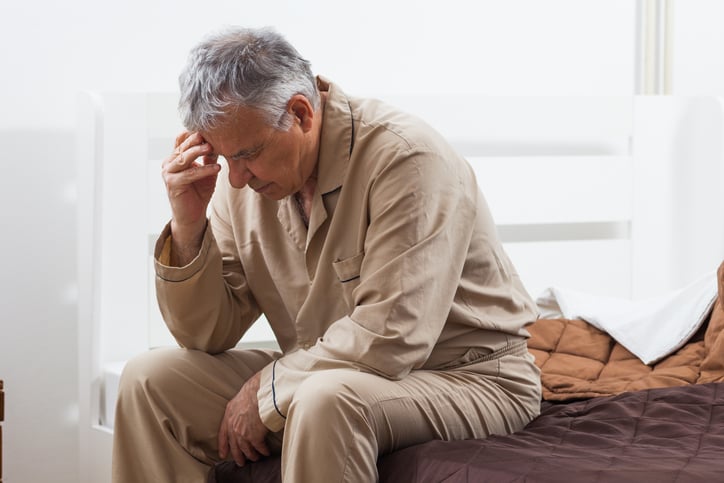“Don't accept regular fatigue as part of aging.” — Health.Harvard.edu
If you occasionally feel tired, that’s normal, no matter what your age. If even after a good night’s sleep, you still have a lack of energy — and/or that tiredness has been going on for a while — then the National Institute on Aging suggests it may be time to take a closer look at what’s going on.
Also pay attention to other signs of fatigue, which can include a lack of motivation as your day begins or an inability to participate in activities you enjoy. You might experience a shortness of breath and/or suddenly feel exhausted.
Reasons for a lack of energy in older adults often include one or more of the following:
- illness
- side effects from medication
- side effects from medical treatments
- anxiety, depression, grief or stress
- feeling that you don’t have control over your own life
- boredom
And if you feel tired too often, there could also be lifestyle factors playing a role. For example, are you staying up too late? Is your bedtime erratic? If the answer to either question is “yes,” then establish and keep a regular bedtime and monitor what happens.
Limit your intake of alcohol and replace junk foods with nutritious foods that give you energy. It can make sense to drink a cup of coffee or tea to give yourself a little boost but, on the other hand, you’ll want to limit your caffeine intake, especially in the latter part of the day.
Keeping a Fatigue Diary
To help determine what’s causing your fatigue, it can help to keep a diary, writing down when you have the most and least amount energy. If you decide to consult your doctor about your fatigue, this diary can be quite useful and will likely offer him or her clues about what to investigate and/or recommend.
Possible Medical Conditions
There are several medical conditions that can contribute to fatigue, including anemia. With this condition, your blood has too few red blood cells — or those red blood cells have too little hemoglobin in them. In either case, the result is less energy.
Other potential medical conditions that can cause a lack of energy include heart disease, thyroid problems, sleep apnea, chronic fatigue syndrome and more. In each of these cases, it’s important to get the correct diagnosis and work with your medical team for treatments. When treatments include medications, talk to your doctor if they seem to be a cause of fatigue. Sometimes, a different medication or dosage may be the answer.
Fatigue Fighters
Here are two strategies to try: First, try going for a 30-minute walk or engage in regular physical activity. That can be a real energy booster. The other strategy is to take a midday nap, perhaps for 20 to 30 minutes. Avoid longer naps as that can leave you feeling groggy, and don’t nap too late in the day.
HopkinsMedicine.org offers more energy-boosting suggestions, including to:
- Eat mostly fresh, whole (unprocessed) foods.
- Keep your intake of animal products in moderation, especially red meat.
- Ask your doctor about your vitamin D levels. If low, ask if you should take a supplement.
- Make sure you’re getting enough vitamin B12. It’s found in animal products, and soy and almond milks are often fortified with B12.
Mindful living practices can also help fight fatigue. These practices include meditation and yoga, among other choices, with living in the moment playing a key role in an improved outlook on life and an overall quality of life. Also make sure you’re drinking enough water, especially after participating in physical activity.










